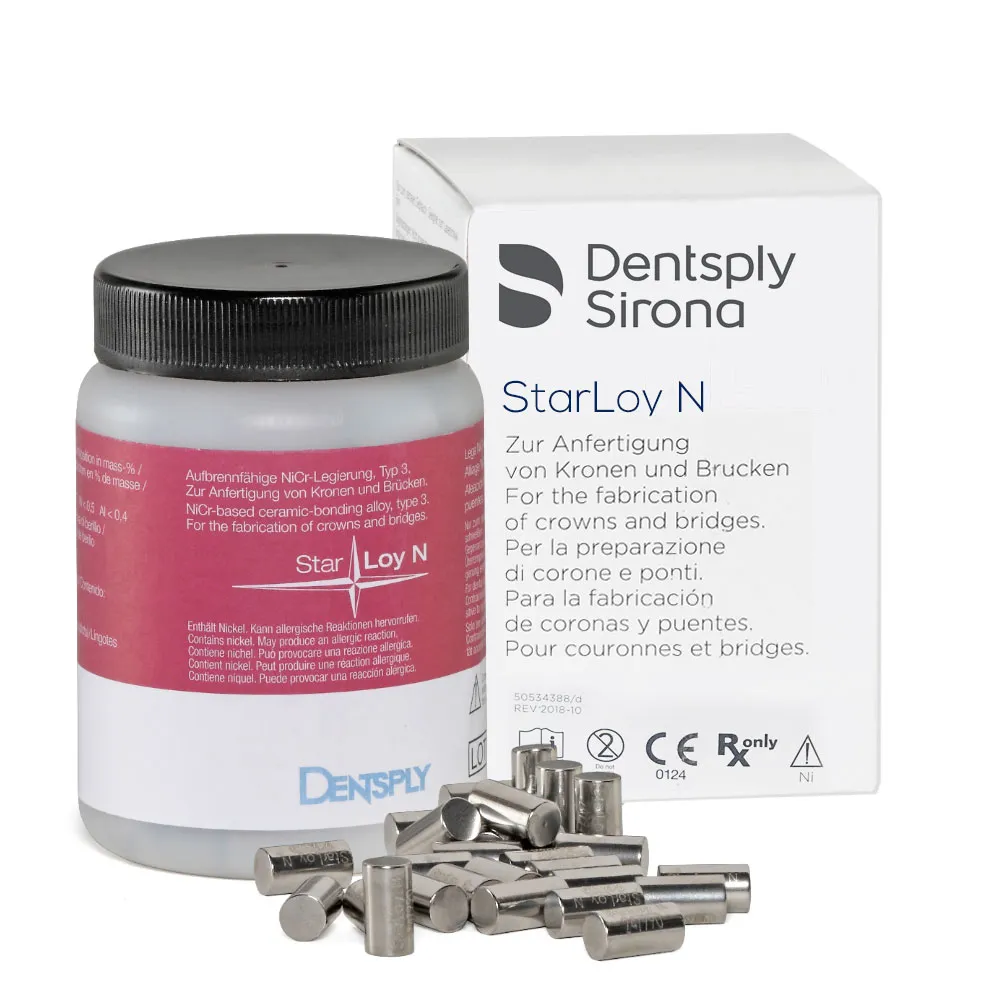Dental Laboratory Metals
Dental laboratory metals are the foundation of precision dentistry, providing the strength, durability, and reliability required for a wide range of dental prosthetic applications. At Dentalkart, we recognize the vital role that dental laboratory metals play in crafting dental restorations that stand the test of time. Our dedicated "Dental Laboratory Metals" category is thoughtfully curated to cater to the unique needs of dental professionals, offering an extensive selection of high-quality metal products from renowned brands. Explore our comprehensive range of dental lab metals, each meticulously chosen to elevate the capabilities of dental laboratories.
Dental Laboratory Metals in Dentistry:
Dental laboratory metals are essential in restorative dentistry for their ability to provide stable, long-lasting, and biocompatible solutions. These materials form the basis for fabricating crowns, bridges, partial dentures, and other prosthetic restorations. Their importance lies in their ability to withstand the rigors of the oral environment while maintaining excellent structural integrity.
Types of Dental Laboratory Metals:
- Base Metal Alloys: These alloys, often nickel-based, are known for their biocompatibility and corrosion resistance. They are commonly used in the construction of partial denture frameworks.
- Precious Metal Alloys: Typically consisting of gold, palladium, and silver, precious metal alloys are renowned for their high biocompatibility and ability to create highly aesthetic crowns and bridges.
- Non-Precious Metal Alloys: These alloys, such as cobalt-chromium, offer a balance between strength and affordability, making them suitable for a wide range of restorations, including crowns, bridges, and removable partial dentures.
- Titanium Alloys: Known for their exceptional biocompatibility, titanium alloys are often used in dental implant systems and frameworks for implant-supported restorations.
- Base Metal Casting Alloys: These alloys are favored for their precision casting properties, making them suitable for intricate crown and bridge work.
Dentalkart is committed to providing dental professionals with a comprehensive selection of high-quality dental laboratory metals sourced from reputable brands. Our Dental Laboratory Metals category showcases a diverse range of materials, each carefully chosen to meet the unique requirements of dental laboratories.
Q: What metals are commonly used in dental applications?
A: Common metals used in dental applications include silver amalgam, stainless steel, nickel chromium, cobalt-chromium, titanium, nickel titanium, and gold alloy. Each metal is chosen for its specific properties and suitability in various dental treatments and restorations.
Q: Which type of metal is best for dental crowns and bridges in terms of durability and aesthetics?
A: The choice of metal depends on the specific case and patient preferences. Gold alloy and high noble metal alloys are known for their durability and aesthetics, while non-precious alloys like cobalt-chromium offer a balance of strength and affordability.
Q: Are there any concerns regarding metal allergies or sensitivities in dental restorations?
A: Metal allergies are relatively rare, but some patients may be sensitive to certain metals. It's important to discuss any known allergies or sensitivities with your dentist, as alternative materials can be considered.
Q: Are there any concerns about metal restorations interfering with diagnostic imaging, such as X-rays?
A: Modern dental metals are generally safe for diagnostic imaging, and they typically do not interfere with X-rays or other imaging techniques.
















